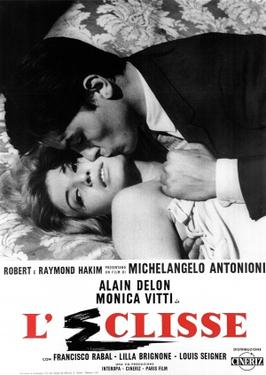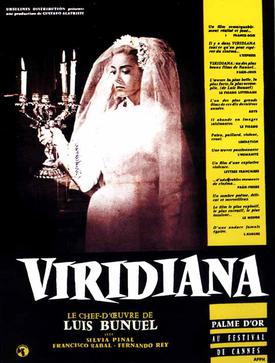A blog formerly known as Bookishness / By Charles Matthews
"Dazzled by so many and such marvelous inventions, the people of Macondo ... became indignant over the living images that the prosperous merchant Bruno Crespi projected in the theater with the lion-head ticket windows, for a character who had died and was buried in one film and for whose misfortune tears had been shed would reappear alive and transformed into an Arab in the next one. The audience, who had paid two cents apiece to share the difficulties of the actors, would not tolerate that outlandish fraud and they broke up the seats. The mayor, at the urging of Bruno Crespi, explained in a proclamation that the cinema was a machine of illusions that did not merit the emotional outbursts of the audience. With that discouraging explanation many ... decided not to return to the movies, considering that they already had too many troubles of their own to weep over the acted-out misfortunes of imaginary beings."--Gabriel García Márquez, One Hundred Years of Solitude
Search This Blog
Showing posts with label Francisco Rabal. Show all posts
Showing posts with label Francisco Rabal. Show all posts
Monday, October 31, 2016
Tie Me Up! Tie Me Down! (Pedro Almodóvar, 1989)
The vivid Technicolor imagination of Pedro Almodóvar doesn't serve him as well in Tie Me Up! Tie Me Down! as it did in his immediately previous hit film Women on the Verge of a Nervous Breakdown (1988). This film feels rather like an uneasy mashup of a romantic comedy and a bondage porno. Actually, "porno" is too strong a word, for even though Tie Me Up! received an NC-17 rating on its release in the United States, there's very little in it that can't be seen any night on the mainstream shows of pay-cable outlets like HBO and Showtime. The most explicit scenes involve Marina (Victoria Abril) taking a bath with a mechanical tub toy shaped like a frogman that nuzzles into her private parts -- a scene that's more funny than erotic -- and an extended sex scene with Marina and Ricky (Antonio Banderas) that's undeniably erotic but not especially revealing -- it mainly shows their upper bodies, except for an overhead shot that reveals Banderas's posterior. What's more objectionable -- especially in the context of today's renewed dialogue about rape and sexual harassment in the context of the presidential campaign -- is the film's central plot premise: Ricky, who has just been released from a mental institution (whose director and nurses he has been happily bedding), kidnaps film star Marina, whom he once picked up and had sex with during an escape from the institution. In the course of trying to make Marina fall in love with him, Ricky keeps her tied up. Eventually, she finds herself falling in love with him, and the film ends with Ricky going off to live with her and her family. It can be argued that the premise is freighted with irony: Ricky's attempt to win Marina leads to his being severely beaten by the drug dealers he goes to see to procure something to relieve her toothache and other pains -- as a recovering drug addict, Marina finds almost any painkiller short of morphine ineffective. The kidnapper gets a measure of punishment for his misdeed, in other words. But the film's unsteady tone and the somewhat pat "happy ending" don't overcome the essentially distasteful sexual politics of the premise. Though it's a misfire, the movie gets good performances out of Banderas and Abril, as well as Loles León as Marina's exasperated sister, Lola, and Francisco Rabal as Marina's director, desperately trying to control the chaotic production of what may be his last film. The brightly colorful sets by production designer Esther Garcia, art director Ferran Sánchez, and set decorator Pepon Sigler, and the cinematography by José Luis Alcaine are also a plus.
Sunday, August 7, 2016
L'Eclisse (Michelangelo Antonioni, 1962)
I'm still an admirer of Pauline Kael's film criticism, but it has dated. She did a great service in her heyday, the 1970s, by cutting through the thickets of snobbery to advance the careers of American filmmakers like Robert Altman and Sam Peckinpah. But that often meant attacking "art house" filmmakers like Antonioni and Alain Resnais, poking at their supposed intellectual pretensions. Although I was never a "Paulette," my career as a professional film critic having been a matter of a few months reviewing for a city magazine, I think I qualified at least as a Kaelite: one who took her point of view as definitive. For a long time, I scoffed at films by Antonioni, Resnais, and others like Ingmar Bergman who got glowing notices from the high-toned critics but zingers from Kael. The bad thing is that I missed, or misinterpreted, a lot of great movies; the good thing is that I can spend my old age rediscovering them. And L'Eclisse is a great movie. One that, to be sure, Kael could dismiss as "cold" and mock for its director's use of Monica Vitti as a vehicle for his views on "alienation." I will grant that Vitti's limited expressive range can be something of a hindrance to full appreciation of the film. But it would have been a very different movie if a more vivid actress like Jeanne Moreau or Anna Karina or even Delphine Seyrig had played the role of Vittoria. Vitti's marmoreal beauty is very much the point of the film: She is irresistibly attractive and at the same time frozen. Alain Delon's lively Piero begins to become blocked and awkward in his attempts to rouse her passion. In the opening scene, in which Vittoria tells Riccardo (Francisco Rabal) that she's leaving him, the two behave in an almost robotic, mechanical way, unable to release anything that feels like a natural human emotion at the event. We see later that Vittoria is able to let herself go, but only when sex is not in the offing and when she is playing someone other than herself: i.e., when she blacks up and pretends to be an African dancer. But Marta (Mirella Ricciardi) puts a stop to this by saying "That's enough. Let's stop playing Negroes." Marta, a colonial racist who calls black people "monkeys," evokes the repressive side of European civilization, but L'Eclisse transcends any pat statements about "alienation" through its director's artistry, through the way in which Antonio plays on contrasts throughout. We move from the slow, paralyzed male-female relationships to the frenzy of the stock exchange scenes, from Vittoria's rejection of Piero's advances to scenes in which they are being silly and having fun. Nothing is stable in the film, no emotion or relationship is permanent. And the concluding montage of life going on around the construction site where Vittoria and Piero have seemingly failed to make their appointment is one of the most eloquent wordless sequences imaginable."Some like it cold. Michelangelo Antonioni on alienation, this time with Alain Delon and, of course, Monica Vitti. Even she looks as if she has given up in this one."--Pauline Kael, 5001 Nights at the Movies
Thursday, March 24, 2016
Viridiana (Luis Buñuel, 1961)
TCM this month has been running a series of movies condemned by the Catholic Legion of Decency, with commentary by Sister Rose Pacatte. Sister Rose doesn't have a lot of screen presence, but she does a good job of explaining why the Legion in its heyday found the movies objectionable -- and suggesting why they really aren't. It's hard to believe today that Viridiana, with its heavily moral tone, was once considered blasphemous, but ours is a day when anything sacred is routinely held up for scrutiny. It's the first work of Buñel's greatest period as writer-director, and while it doesn't quite rise to the exalted standard of Belle de Jour (1967) or The Discreet Charm of the Bourgeoisie (1972), it wrangles effectively with their topics, including middle-class morality and the repressive element of Catholicism. Silvia Pinal gives the title role credibility, moving from naïveté through disillusionment to a final note of ambiguity: Has Viridiana truly fallen from the grace she has so ardently sought? The film is also a triumph of casting, not only in the key roles of Don Jaime (Fernando Rey), Viridiana's lecherous, tormented uncle, and Jorge (Francisco Rabal), his equally lecherous but profoundly untormented bastard son, but also Margarita Lozano as Ramona, Don Jaime's and later Jorge's maid-mistress, and Teresa Rabal as Rita, Ramona's sly, sneaky daughter, And then there's the gallery of grotesques, the beggars whom Viridiana naively takes in and tries to care for. Is there a more horrifying scene than the one that culminates in Buñuel's famous parody of Leonardo's The Last Supper, in which the beggars nearly destroy Don Jaime's house, which Jorge is trying to restore? It can be argued that the avaricious Jorge gets what's coming to him, of course, but Buñuel is never as simplistic as that, viz., the deep ambiguity of the closing scene in which the virtuous Viridiana has let down her hair and forms a threesome -- at the card table but where else? -- with Jorge and Ramona.
Subscribe to:
Comments (Atom)


